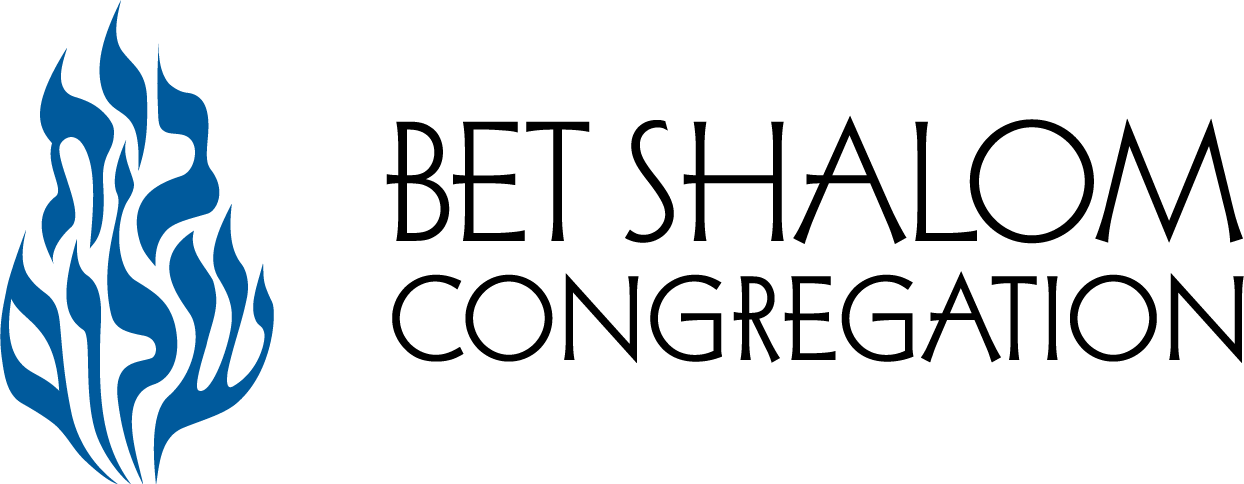Bet Shalom Rebounds from the Pandemic
by Maura Lerner Fisher
It’s no surprise that Covid-19 upended life as we knew it at Bet Shalom. But what’s really striking, nearly three years into the pandemic, is just how the congregation is thriving in spite of it.
And even, to some extent, because of it.
Overall, our membership continues to grow. We've increased from 710 households in 2019 to 730 today, including many new families among the newcomers. And many of the rhythms of Jewish communal life, from preschool to weddings, are nearing or exceeding pre-pandemic levels. Compared with 2019, so far in 2022 baby namings have increased from 6 to 10, weddings are up from 11 to 13, B'nai Mitzvot increased from 29 to 31, and completed conversions increased from 5 to 8.
Add that to the multitude of creative ways that members are reaching out to one another, through new clubs like birding and wine tasting, it’s no wonder that Rob Kieval, president of the board of trustees, calls it a cause for celebration.
“Congregational life is picking up, so we’re delighted,” he told me. It’s also a message he tried to drive home at this year’s annual meeting. “We spend a lot of time talking about why the synagogue is expensive and all the costs that are incurred, and I wanted to highlight for people the goodness that is Bet Shalom and the good that Bet Shalom does, and the number of lives that it touches and enriches.”
One of the biggest success stories of the pandemic is the early childhood program, Bet Shalom Yeladim. While it closed temporarily in the spring of 2020 during the government-imposed lockdown, the preschool, which enrolls kids from six weeks to 5 years old, saw an explosion of demand. This fall, it will enroll more than 60 children, up nearly 50 percent since before the pandemic, and still has a waiting list.
“We really did a very good job of running the preschool during the pandemic, and word got out,” explained Steve Barberio, the synagogue’s executive director. “We just adapted to the reality.” Extra safety measures allowed it to remain open full-time — which proved to be a boon to working parents inside and outside the congregation. It’s become so popular, he said, that the leadership is considering options to expand even more.
To Associate Rabbi Jill Avrin, the preschool is just one example of how the pandemic has fueled interest in Bet Shalom. This year, she said, she’s officiating at more weddings than ever, and has seen a noticeable uptick in interest in conversions — not just, she points out, from people with Jewish partners.
“I think this is definitely a result of the pandemic,” Rabbi Avrin said. The common thread, she says, is how people are “striving for meaning, striving for community and connection. Now we’re seeing this huge explosion of people who are feeling ready to come back … to try to find what they’ve been missing for the last few years.”
That may not, of course, translate into a packed sanctuary, at least for a while. “It’s been challenging,” Kieval says. “We’re encouraging congregants to come back to the sanctuary. (But) we do plan to continue the streaming as well, because we know that (for) some congregants, that’s the only way they’re going to participate.”
Rabbi Avrin agrees that hybrid services — in-person and streaming online — are probably here to stay. And she welcomes that. “I just have been so proud of what we’ve done as a community and staff …to meet the needs of the times,” she said. The challenge now, she adds, is “to make sure we’re not just going back to what we were doing in 2019. To recognize that it’s a new world. It means we need to be more creative in thinking about what it looks like to belong to a synagogue today.”





